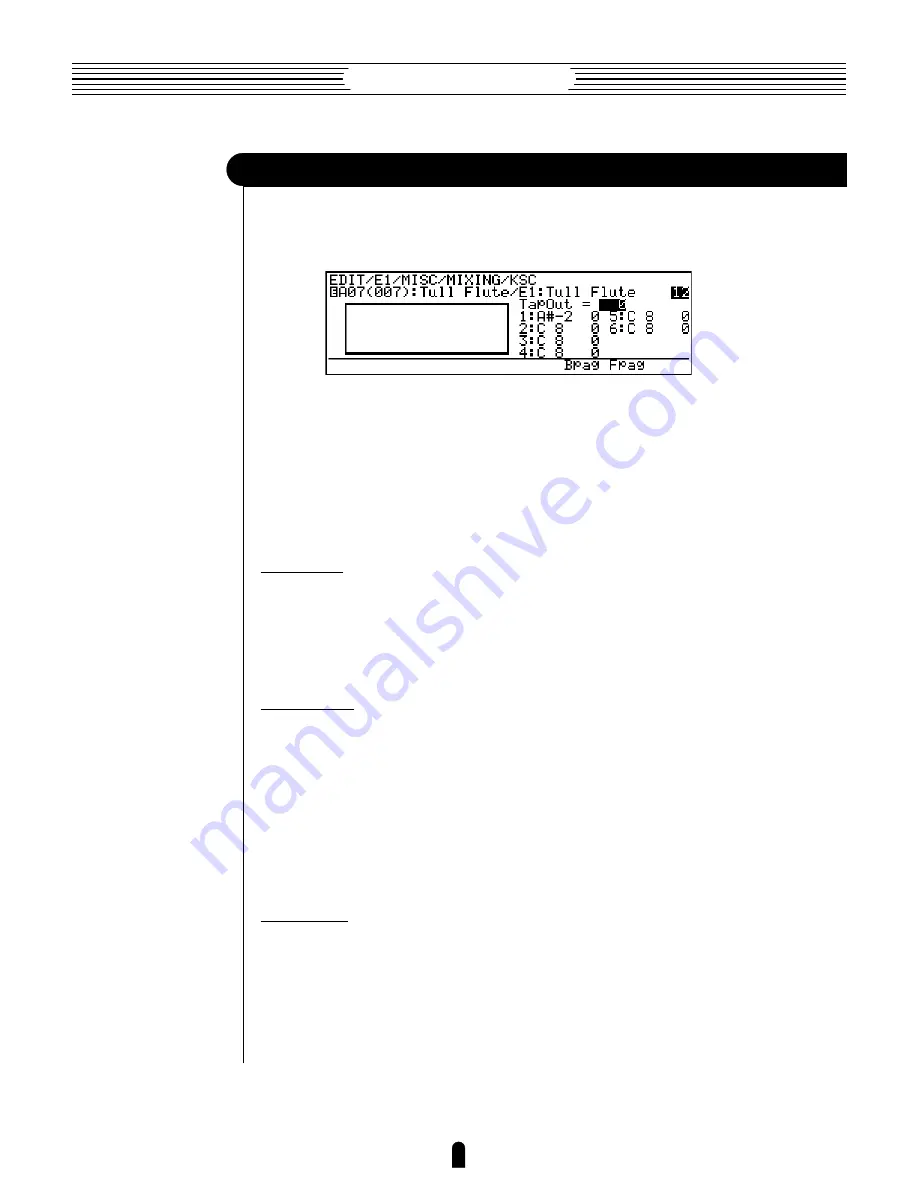
102
Feature Reference
●
Edit Mode
4-3: Mixing Tap Output Key Scalling
Mixing tap output key scaling produces natural timbre variations across the range of
the keyboard by allowing different tap output offset values to be applied to each of six
breakpoints set at appropriate keys.
•
The
§
and
¶
buttons (“
Bpag
” and “
Fpag
”) can be used to go directly
backward or forward to the next mixing key scaling page without having to
return to the main parameter page.
•
Tap Output Key Scaling has no effect when the main Mixing page “
Tap
Setting
” parameter is set to “
Driving Position
”.
●
TapOut
≤
0 … 127.
The “
TapOut
” parameter is linked to the main mixing “
Tap Output
” parameter,
and has the same effect. This value also determines the main output level on which all
key-scaled variations are based (indicated by a dotted line on the graph).
●
Breakpoint 1 … 6 Key
≤
C-2 … G8.
Allows six separate key scaling breakpoints to be set at any notes between C-2 and
G8. You can position the cursor at the appropriate breakpoint key parameter and use any
of the normal data entry procedures, or use a keyboard. To use a keyboard for breakpoint
entry, position the cursor at the appropriate breakpoint key parameter, press the
•
button (“
Kbd
”), and then press the key at which you want to set the breakpoint while
“
Kbd
” appears in inverse characters.
No breakpoint can be set to a key lower than the breakpoint to its left.
●
Breakpoint 1 … 6 Offset
≤
-64 … 63.
Set the amount of output offset for each of the breakpoints defined by the break-
point key parameters, above. Negative values reduce the output, and positive values
increase the output at the corresponding breakpoint. No matter what offset value is
chosen, the actual output level will never exceed its minimum or maximum absolute
value. When different offset values are applied to adjacent breakpoints, the output varies
smoothly between the breakpoints.
Summary of Contents for VL1-m
Page 1: ......
Page 5: ...Owner s Manual 2 Feature Reference Virtual Acoustic Tone Generator ...
Page 10: ...6 Feature Reference ...
Page 33: ...29 Feature Reference Edit Mode ...
Page 163: ...159 Feature Reference Utility Mode System ...
Page 180: ...176 Feature Reference Utility Mode ...
Page 193: ...189 Feature Reference Appendix Index ...
Page 195: ......






























